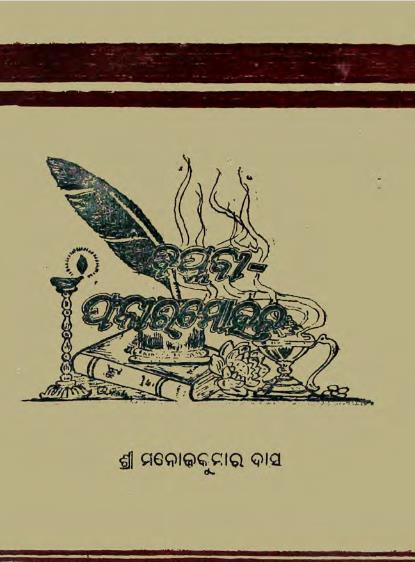Published in 1950, Biplabi Fakir Mohan by Manoj Kumar Das stands as a poignant collection of poetry that captures the spirit of resistance and the quest for social justice in Odisha. In this powerful work, Das intricately weaves themes of revolution, identity, and the enduring strength of the human spirit, making it a significant piece of Odia literature that resonates well beyond its time.
The title Biplabi Fakir Mohan itself is a powerful statement, invoking the image of Fakir Mohan Senapati, a revered figure in Odia literature and social reform. Through this collection, Das pays homage to the revolutionary spirit embodied by Senapati, infusing his poetry with a sense of urgency and purpose. The poems reflect a deep yearning for liberation—both from colonial oppression and from the shackles of societal inequalities.
The theme of resistance is prominent throughout the collection. Das employs vivid imagery and evocative language to depict the struggles faced by the marginalized and oppressed. His verses evoke a strong sense of empathy, encouraging readers to reflect on the plight of those who have fought for their rights and dignity. In doing so, Das not only honors the legacy of social revolutionaries but also stirs a collective consciousness among his readers regarding the ongoing struggles for justice in society.
Manoj Kumar Das’s poetic style in Biplabi Fakir Mohan is characterized by its lyrical beauty and rhythmic cadence. His use of traditional Odia folk motifs and metaphors adds layers of meaning to his work. The poems often draw upon the natural landscape of Odisha, using rich descriptions of rivers, fields, and skies to create a sense of place and belonging. This connection to nature not only enhances the aesthetic quality of the poetry but also reinforces themes of resilience and renewal.
Das’s language is accessible yet profound, speaking directly to the hearts of readers. His choice of words resonates with the common people, reflecting their struggles and aspirations. The blend of simplicity and complexity in his language invites readers to engage deeply with the underlying messages of his poetry.
Biplabi Fakir Mohan was published in a period marked by significant social and political upheaval in India. The post-independence era brought with it both hope and challenges, and Das’s poetry captures the essence of this transition. The collection serves as a mirror to the evolving landscape of Indian society, addressing issues such as poverty, inequality, and the search for identity in a newly independent nation.
In this context, Das’s poetry serves not only as art but also as a form of activism. His work encourages readers to rise against injustice and advocate for a better future. By invoking the spirit of revolution, Das aligns himself with the voices of those who dare to challenge the status quo, reaffirming the importance of social change in the fabric of democracy.
Books Info
| Books name | Biplabi Fakir Mohan |
| Author | Manoj Kumar Das |
| No Of pages | 26 |
| Publisher | NA |
| Publication | 1950 |
| Printed At | NA |
| Distributor | NA |

